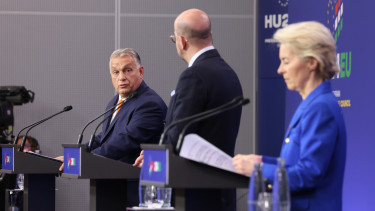Fourth wave in pandemic to start in mid-September, kick in in mid-October - virus expert

The steepness of the trajectory of the fourth wave depends on what virus people bring home from their vacation, said Rusvai. The main risks, he added, are the end of vacations, the start of the school year and mass events such as the hunting fair.
Although he has not mentioned it, there will be a 3.5-day stream of events on more than 20 locations between 19 and 22 of August to celebrate the foundation of the state (20 Aug), including concerts, street music festivals, a food truck show and the ever so popular visual feast of tiny rockets loudly blowing up in the sky spitting colourful sparks in oh so wonderful patterns. These are all superspreading events.
Rusvai thinks the fourth wave will start in the second half of September. (Balázs Pártos, a local enthusiast whose pandemic-related projections tend to be correct, calculated by a self-invented methodology that the fourth wave had indeed started at the end of May, early June, only the traditional indicators did not reflect that.)
Rusvai reminded that the Delta variant has become dominant in most countries, while the Lambda variant is already present in Central and South America. The vaccines used in Hungary offer a smaller yet still effective protection against these, because the virus did not mutate considerably on the part of the spike protein where it attaches to the surface of our cells, he explained.
Rusvai said that even those that had been vaccinated can be infected and bring back the virus possibly from abroad but their chances of transmitting it are smaller. However, he has warned that children that have not been inoculated do pose a transmission risk.
He stressed that children should be vaccinated with their second dose by the middle of August at the latest so that they would be protected by the time school starts. It will be a critical period not just for them but also for adults.
Rusvai underlined that those in vulnerable groups (i.e. with chronic diseases, the elderly and those that had received their shots in early 2021) should have their third dose in late September or early October. The others who were vaccinated between April and July, have no such vulnerabilities and are middle-aged at most should request their second booster shot in November or December.
As regards the third doses he said the vaccines of Pfizer-BioNTech and Moderna can be used regardless the first two doses. The situation is different when it comes to vector vaccines that should be followed up by an mRNA vaccine. People administered inactivated vaccines (e.g. Sinopharm) should receive a different type of vaccine as their third dose, either mRNA or vector vaccines, he added.
Rusvai thinks that restriction measures will be tightened as a response to the fourth wave, projecting that mask-wearing will return, and that with 250 to 300 new confirmed daily cases it should be made mandatory again at the places it was previously compulsory.
He stressed that due to the high transmission rate of the Delta variant many of those inoculated against coronavirus will also be infected but their symptoms will be mild or they will be asymptomatic altogether.
Rusvai thinks the coronavirus pandemic will stay with us for another two years, but he expects its waves to weaken by time.
Cover photo: InfoRadio’s Aréna programme cover photo on 9 August 2021.











